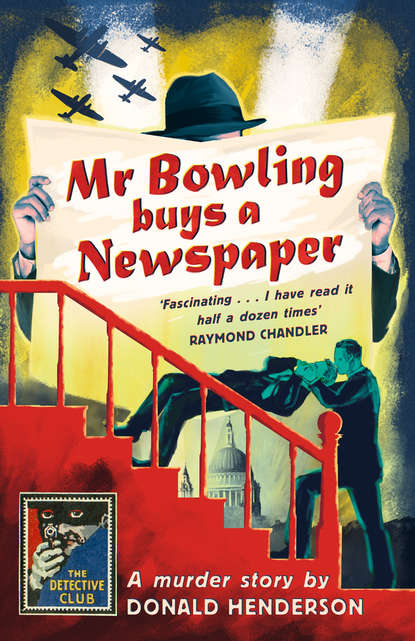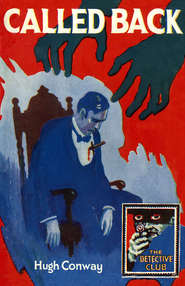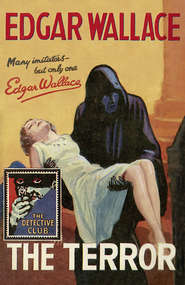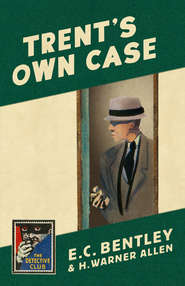По всем вопросам обращайтесь на: info@litportal.ru
(©) 2003-2024.
✖
Mr Bowling Buys a Newspaper
Настройки чтения
Размер шрифта
Высота строк
Поля
When he was desperate, he got on to this. Writing music? ‘Don’t make me laugh,’ he said to everyone. ‘It’s who you know—not what you know.’ He was a fairly good pianist, but he went to agents in vain. As for selling anything!
‘This won’t do,’ he thought, shabby and hungry. ‘Is this all my education means?’
He wished he’d been apprenticed to a garage all those school years. Mending punctures and things.
He had a peep down the Morning Post. There was nothing. Yes, there was, there was Salesmanship. Vacuum cleaners. Trade journals. Itinerary for housewives. Doors slammed in your face, Margate, Sheffield, Maidstone and Tunbridge Wells. You could have it. There was no food in it, no clothes, no beer, no fags, no pictures, no women.
Life was complete Hell. Only those who had been through it knew what complete Hell on earth it really was, to an educated man with a sense of humour, a sense of patience, and a sense of God—which meant a sense of courage. And an artistic man, at that, whose mind and heart responded to the hidden chords of good music.
He would lie on his back on shabby divans and think about it. He’d try to laugh.
‘It’s no bally good giving in, you know? No blessed good at all, don’t you know! What?’
He first met Queenie in a pub. It was the Plumber’s Arms off Ebury Street. She wasn’t married then, she was friendly. He only had fourpence, what was the good of keeping it? He’d just tumbled on to the insurance racket, commission only, and maybe things would soon brighten up a bit. He digged up the road a bit, a bed-and-breakfast place, where he owed five weeks’ rent, but the old girl saw he was a gentleman and honest and down on his luck. She said openly she liked his smile and his laugh. Still, things couldn’t go on like this, you know, what? He saw Queenie looking at him and smiling. He smiled too, but regretted she would be unlucky if she wanted a drink. She was a bit blowsy, but she had a nice face and a smooth skin. She used the usual technique and said hadn’t she seen him somewhere before? He said the usual, yes, where was it now, but hastily adding he was flat broke, he was terribly sorry. ‘That’s all right, my dear,’ she said at once, ‘you must have one with me. Double Haig?’
‘I say, doubles, eh?’ he queried, wishing she’d buy a double sandwich instead.
‘Why not?’ she said sympathetically.
He saw her give his clothes a polite once-over.
‘Married?’ she said.
‘Yep,’ he said.
They got talking. With some people it was easy as winking. He told her about his marriage, how he’d cleared out, and how he already felt beaten and ready to go back.
‘I miss my piano. And the carpet,’ he laughed.
‘Where?’
‘Oh, Fulham.’
‘Poor old you.’
‘It’s hers, you see. Nearly everything. It was her money when we got married, that was my big mistake. She’s a lady, but she’s odd. Oh, I dunno. I was only twenty-one.’
‘Oh!’
‘She’s a bit older than me, quite a bit. Her parents cut her off, didn’t like me. She drags it up. I’m never allowed to forget. She goes on and on. Year after year, you know. I dunno, at last I blew right up in the air. You have to, sooner or later, don’t you?’
He laughed.
‘Let’s have another,’ she said.
He laughed again. Very ashamed, he went pink and said, ‘My dear, quite honestly, will you buy me a sandwich?’
She got half a whisky bottle, a couple of quarts of Bass, some fags, a cigar and marched him out.
‘There’s food at home. Come along.’
‘You’re a darling. This is ripping. Oh, my God, I feel a complete cad.’
‘You dry up.’
‘You’re a perfect pet.’
‘It’s in here …’
‘I wish there’d be a bally war or something, what?’
He laughed and she laughed and they stumbled up the narrow stairs to the top floor. It was rather theatreish, the hangings were like red plush. There was a not unpleasant suggestion of onions. There were two rooms, overcrowded with furniture and clothes chucked about, and the bath was in the kitchen with a board on it, the board crowded with vegetables and things. She showed the geyser, saying she’d given it a proper old polish this morning, and he could have a bath later on, just as he liked. She slipped into a white dressing gown affair and he sat smoking while she shoved something in the oven. When she finished that he gave her a kiss and they stood smiling at each other, she standing, he sitting on the edge of the bath, sort of amused, rueful expressions saying: ‘This old world, what can you do with it, short of making a complete hash of it?’ When he’d eaten they got talking about prudery and hypocrites, and discussing what the devil sin really was, where it began and where it ended, and what morals really were, poor old Hatry got landed, while old So and So, a complete rogue if ever there was one, remained M.P. for West Ditherminster, with packets of dough in armaments. Then they got down to whether, once agreed what sin was, you got punished for it on this earth—or later. It was very absorbing, and had always fascinated him very particularly; but Queenie dropped asleep on the sofa with his arm round her warm, plump body, and as she didn’t believe in God it was unlikely they would ever reach a conclusion. Being strong as a lion, despite all the undernourishment he had gone through, he carted her into bed and got himself undressed. The effort upset him strangely, but she was dead out, so he knelt by the bed and stared at her, quaintly saying the Lord’s Prayer out loud. The stuff she put on her hair was a bit faded at the roots, but she looked fair and he thought of Angel again. When he got into bed, she didn’t leave much room, and he had to get out to go and switch off the light. After that, he had to get out again twice in the night, forgetting the light both times, so the night was like a kind of steeple chase, treading over Queenie’s plump body, and trying not to kneel on her stomach in the dark. He made love to her in the morning when she woke up, a sudden impulse it was, and an impatient one, and afterwards he felt a bit worried. But she said:
‘My dear boy, don’t you worry about me!’
At breakfast, she used common sense.
‘Be a sensible boy and go back home. You can stick it, my dear. It’s better than this? Come over and see me whenever you get too fed up. Will you?’
He told her earnestly that he would never have been unfaithful to his wife if only she’d played the game.
‘I can assure you I’m being eminently fair,’ he told her. ‘I can assure you I never thought there could be anything worse than an unfaithful wife, Queenie. But there is.’
‘Never mind,’ she said. ‘The Hell you know’s never so bad as the Hell you don’t know. That’s a true enough saying. Be a good boy and go back. Or I shall worry.’
‘It’s immoral to live with a woman you don’t love.’
‘But you don’t make love to her, do you? Be like neighbours! Friendly enemies!’
And they laughed again.
Later in the morning, he took the tube and went home. But there was a strange new happiness in his heart, the feeling of having both found love and made a friend. He already felt it so strongly that he wanted to divorce Ivy and marry Queenie. He was far from sure that Queenie was the kind for marriage, and in any case she had told him she would marry for security when she got the chance, and for nothing else, she would be insane not to. But he had been so happy with her, he was vain enough to think he could break this down. His feelings about it were strong, although he had got over it by evening, when he realised she was not a lady. This was a practical thought, not a snobbish one, it was whether a gentleman could live happily married to somebody a bit different. Ivy was a lady, and look what that meant?
What a mess it all was.
He let himself in.
She was there, as he knew jolly well she would be there, and she behaved in the way he jolly well knew she would behave; she said and did simply nothing at all: she just sat around with that particular expression on her face.
Her face was pinched and had always been a bit sallow, a sort of brown that was not sunburn. There was that about her which made the name Ivy seem dry and hard and right. Her hair was black and dry. She was thirty-eight at that time, his present age, and she looked more than that. Poor old Ivy. It wasn’t her fault, any more than anything was anyone else’s fault. And she was every bit as unhappy. Hardly any friends, only a few callers, and cut off from her parents. It was bad luck. But they were long past the stage of trying to console one another, it had all been run through before, and was threadbare. There were deep wounds, and any words now only lead to louder words, and which made for nothing. He just let himself in, and there she was, and she sat and sewed and he wandered about. He finished up at the piano. About late evening they would have a fine old bust up, he’d have to say about the money owed to the landlady, and she’d have to fork it out; then she’d say the old one about how she always thought he was going to do such wonders with his music, and he’d trot out about how a woman ought to be an inspiration to a man, and not a hindrance. And all the rest of it. Then he’d trot out the divorce topic again, and get the usual defiant No. She challenged his religion with it, ‘I thought you said you were religious?’ and that was always that. Whom God hath joined together, let no man put asunder. ‘We were married in church, weren’t we?’
‘Yes, Ivy. But the marriage has never been consummated, has it? And do you know that even the Pope is impressed by that?’
‘Well,’ she said then in her quiet voice, ‘why don’t you do something about it, then?’
‘No money.’
‘What about the Poor People’s Act?’









